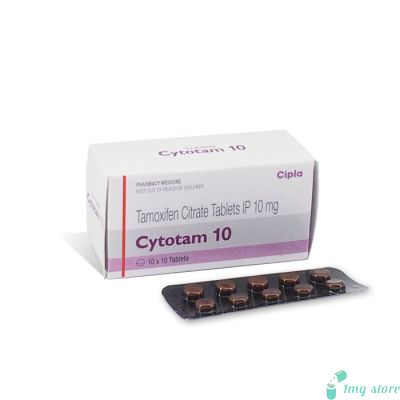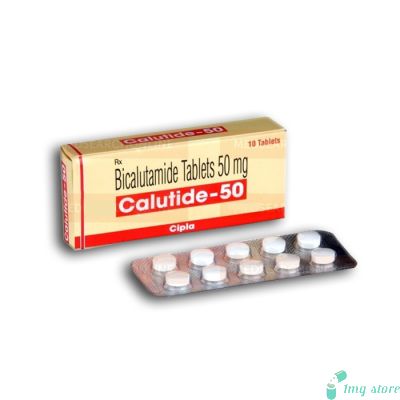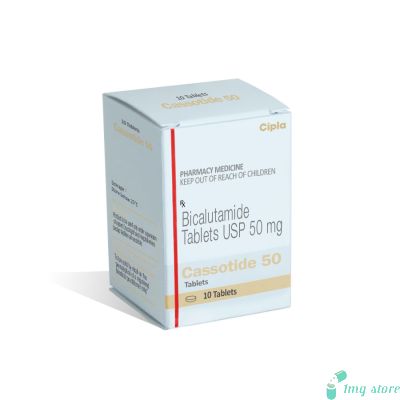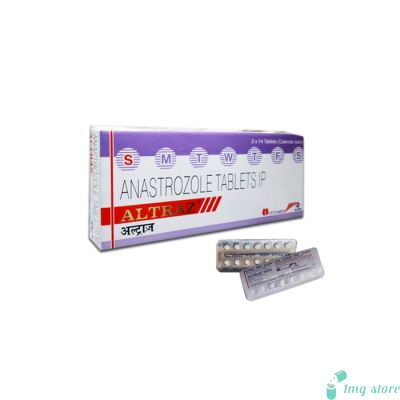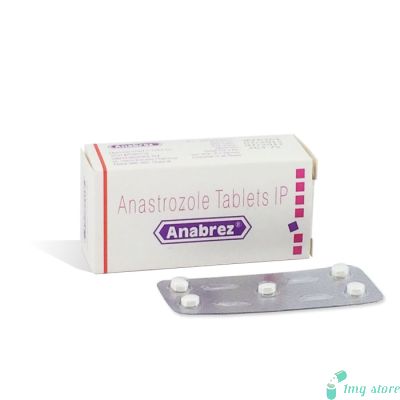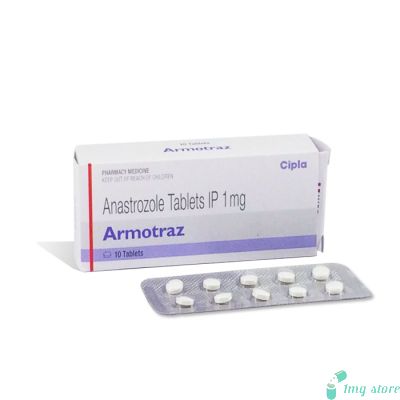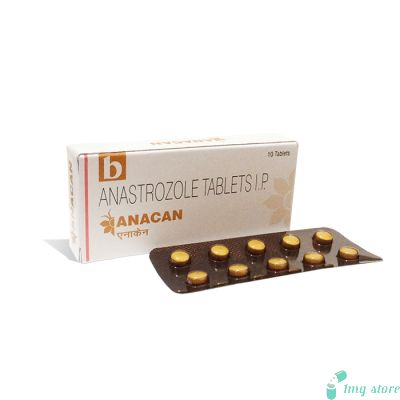6-MP Tablet (Mercaptopurine)
Mercaptopurine Tablet, also known as 6-MP or Purinethol, is a medication commonly prescribed to treat various conditions, including certain types of cancer and inflammatory bowel disease.
Information About 6-MP Tablet (Mercaptopurine)
Mercaptopurine Tablet, also known as 6-MP or Purinethol, is a medication commonly prescribed to treat various conditions, including certain types of cancer and inflammatory bowel disease. It belongs to a class of drugs called purine analogs and works by interfering with the growth and division of abnormal cells in the body. This medication is available in tablet form and is usually taken orally. Before starting mercaptopurine treatment, it is essential to understand the dosage information, uses, and potential side effects. Mercaptopurine, also known as 6-MP, is an important medication in the treatment of various cancers, particularly acute lymphoblastic leukemia (ALL). As an Anti-Cancer drug, mercaptopurine works by interfering with the growth and division of cancer cells, helping to control the disease process. It is often used in combination with other chemotherapy agents to achieve the best possible treatment outcomes. Moreover, mercaptopurine has proven to be a life-saving drug for individuals with inflammatory bowel diseases like Crohn's disease and ulcerative colitis. By reducing inflammation in the intestines, mercaptopurine helps control symptoms, induce remission, and improve the quality of life for patients suffering from these chronic conditions. It is important to recognize the significance of mercaptopurine as both an anti-cancer and Life-Saving Drug, as it provides hope and improved outcomes for individuals battling cancer and those living with debilitating inflammatory bowel diseases. However, due to its potential side effects and interactions, proper medical supervision, regular monitoring, and open communication with healthcare providers are crucial to ensure its safe and effective use.
Dosage Information:
The dosage of mercaptopurine may vary depending on the specific condition being treated, the patient's weight, age, and overall health. It is crucial to follow the prescribed dosage and the instructions provided by the healthcare professional. Generally, mercaptopurine tablets are taken once daily, preferably on an empty stomach, either in the morning or evening. The tablets should be swallowed whole with water and not crushed or chewed. The initial dose of mercaptopurine is often determined based on body surface area or weight, typically ranging from 1.5 to 2.5 mg/kg per day. The dosage may be adjusted based on the individual's response to treatment and any potential side effects. It is important not to exceed the recommended dosage without consulting a healthcare provider.
Purinethol is the brand name for mercaptopurine tablets. It contains the active ingredient mercaptopurine, which is a purine analog. Purinethol is primarily used in the treatment of certain types of cancer, including acute lymphoblastic leukemia (ALL), and inflammatory bowel diseases such as Crohn's disease and ulcerative colitis. It is important to take Purinethol as directed by a healthcare professional and to report any side effects or concerns during treatment.
Mercaptopurine 6-MP Drug:
Mercaptopurine, also known as 6-MP, is a medication used to treat various medical conditions, including cancer and inflammatory bowel disease. It belongs to the class of drugs known as purine analogs. Mercaptopurine works by interfering with the growth and division of abnormal cells in the body, ultimately helping to control the disease process. The dosage and duration of mercaptopurine treatment will vary depending on the specific condition being treated and individual patient factors. It is important to follow the prescribed dosage and instructions provided by the healthcare professional to ensure the safe and effective use of the medication.
Mercaptopurine Medication is commonly used to treat cancer, specifically certain types of leukemia, as well as inflammatory bowel diseases like Crohn's disease and ulcerative colitis. It is available in tablet form and is taken orally. Mercaptopurine belongs to a class of drugs called purine analogs, which work by interfering with the growth and division of abnormal cells in the body. The dosage and duration of mercaptopurine treatment will depend on the specific condition being treated and individual patient factors. It is important to take mercaptopurine as directed by a healthcare professional and to report any side effects or concerns during treatment.
6-MP Drug:
6-MP, short for 6-mercaptopurine, is a medication used to treat various medical conditions, including cancer and inflammatory bowel disease. It is a purine analog drug that inhibits the growth and division of abnormal cells in the body. 6-MP is available in tablet form and is typically taken orally. The dosage and duration of 6-MP treatment will vary depending on the specific condition being treated and individual patient factors. It is important to follow the prescribed dosage and instructions provided by the healthcare professional when using 6-MP. Regular monitoring and communication with the healthcare team are essential to ensure the safe and effective use of this medication.
When using a Mercaptopurine tablet (6-MP), it is important to take certain precautions:
Medical History: Inform your healthcare provider about your complete medical history, including any past or present medical conditions, allergies, or previous adverse reactions to medications. This information will help determine if mercaptopurine is suitable for you.
Pregnancy and Breastfeeding: Mercaptopurine can harm an unborn baby, so it is essential to inform your healthcare provider if you are pregnant or planning to become pregnant. Additionally, it is not recommended to breastfeed while taking mercaptopurine, as it may pass into breast milk and cause harm to the nursing infant.
Immune System: Mercaptopurine can weaken the immune system, making you more susceptible to infections. Inform your healthcare provider if you have a weakened immune system, such as due to HIV/AIDS, or if you are taking immunosuppressive medications.
Liver and Kidney Function: Mercaptopurine is primarily metabolized in the liver and excreted by the kidneys. If you have impaired liver or kidney function, your healthcare provider may need to adjust the dosage or closely monitor your response to treatment.
Vaccinations: Before starting mercaptopurine treatment, ensure that you are up to date with all necessary vaccinations. Live vaccines should be avoided during mercaptopurine therapy, as they can cause severe infections.
Fertility: Mercaptopurine may affect fertility in both males and females. Discuss any concerns about fertility with your healthcare provider before starting treatment.
Primary Applications of 6-MP Tablet (Mercaptopurine)
Cancer Treatment: Mercaptopurine is frequently used in the treatment of certain types of leukemia, such as acute lymphoblastic leukemia (ALL). It helps suppress the growth of cancer cells and is often used as part of combination therapy alongside other anticancer medications.
Inflammatory Bowel Disease (IBD): Mercaptopurine is also used to manage inflammatory bowel diseases, including Crohn's disease and ulcerative colitis. It helps reduce inflammation in the intestines, control symptoms, and maintain remission in some cases.
Autoimmune Disorders: Mercaptopurine may be prescribed for certain autoimmune disorders like rheumatoid arthritis or systemic lupus erythematosus. It helps suppress the overactive immune system, reducing inflammation and symptoms associated with these conditions.
Organ Transplantation: In some cases, mercaptopurine may be used as part of immunosuppressive therapy after organ transplantation to prevent organ rejection. It helps suppress the immune response, reducing the risk of rejection.
Other Uses: Mercaptopurine may be used off-label for other conditions or as part of experimental treatments. However, the use of this medication should always be supervised by a healthcare professional.
It is essential to be aware of these potential side effects:
Nausea and Vomiting: These are common side effects that can often be managed with anti-nausea medications or by taking mercaptopurine with food.
Loss of Appetite: Mercaptopurine can cause a decrease in appetite, leading to weight loss. Maintaining a balanced diet and discussing any significant changes in appetite with your healthcare provider is important.
Bone Marrow Suppression: Mercaptopurine can affect the bone marrow's ability to produce blood cells, leading to an increased risk of infections, anemia, and bleeding. Regular blood tests are necessary to monitor blood cell counts.
Increased Susceptibility to Infections: Mercaptopurine can suppress the immune system, making you more susceptible to infections. Contact your healthcare provider if you experience any signs of infection, such as fever, sore throat, or cough.
Liver Toxicity: Mercaptopurine can cause liver damage in some cases. Symptoms may include yellowing of the skin or eyes (jaundice), dark urine, abdominal pain, or persistent fatigue. Contact your healthcare provider immediately if you experience any of these symptoms.
Allergic Reactions: Although rare, allergic reactions to mercaptopurine can occur. Seek immediate medical attention if you develop signs of an allergic reaction, such as rash, itching, swelling, dizziness, or difficulty breathing.
Other Side Effects: Mercaptopurine can also cause hair loss, diarrhea, mouth sores, pancreatitis, and changes in kidney function. It is important to report any unusual or severe side effects to your healthcare provider.
Frequently Asked Queries About 6-MP Tablet (Mercaptopurine)
Can Mercaptopurine (6-MP) be taken with food?
Yes, mercaptopurine can be taken with or without food. However, taking it on an empty stomach may help improve absorption. If you experience stomach upset, you can take it with a light meal or snack.
Can Mercaptopurine be used in children?
Yes, mercaptopurine can be used in children, particularly for the treatment of acute lymphoblastic leukemia (ALL). The dosage is usually adjusted based on the child's weight and individual response to treatment. Close monitoring and regular follow-up with a pediatric oncologist are necessary.
Can Mercaptopurine interact with over-the-counter medications?
Yes, mercaptopurine can interact with over-the-counter medications. It is important to inform your healthcare provider about all the medications, including over-the-counter drugs, supplements, and herbal products, that you are taking to prevent potential interactions.
Is it safe to become pregnant while taking Mercaptopurine?
No, it is not safe to become pregnant while taking mercaptopurine. It can harm the unborn baby. If you are planning to become pregnant or suspect that you are pregnant, you should discuss this with your healthcare provider immediately to explore alternative treatment options.
Can Mercaptopurine cause long-term effects?
Mercaptopurine, like many other medications, can have potential long-term effects. Regular monitoring by healthcare professionals is essential to identify any adverse effects, such as liver toxicity or bone marrow suppression. It is important to discuss any concerns about long-term effects with your healthcare provider, who can provide personalized guidance based on your specific situation.
Some notable drug interactions with Mercaptopurine include:
Mercaptopurine can interact with other medications, potentially affecting their effectiveness or increasing the risk of side effects. It is crucial to inform your healthcare provider about all the medications, supplements, and herbal products you are taking.
Allopurinol: Allopurinol can increase the toxicity of mercaptopurine by reducing its breakdown in the body. The combination of these medications requires careful monitoring and dosage adjustments.
Azathioprine: Concurrent use of azathioprine and mercaptopurine should be avoided, as they are both metabolized into similar active compounds, leading to potential toxicity.
Warfarin: Mercaptopurine may enhance the effects of warfarin, increasing the risk of bleeding. Frequent monitoring of blood clotting parameters is necessary if these medications are used together.
Vaccines: Live vaccines should be avoided during mercaptopurine therapy, as they can cause infections. Consult with your healthcare provider regarding the timing of vaccinations and mercaptopurine treatment.
Other Medications: Mercaptopurine may interact with medications that suppress the bone marrow, such as certain antibiotics and chemotherapy drugs. It is important to inform your healthcare provider about all the medications you are taking to prevent potential interactions.
| Manufacturer | : | Zydus Cadila |
| Equivalent Brand | : | Purinethol |
| Generic Search | : | Mercaptopurine |










